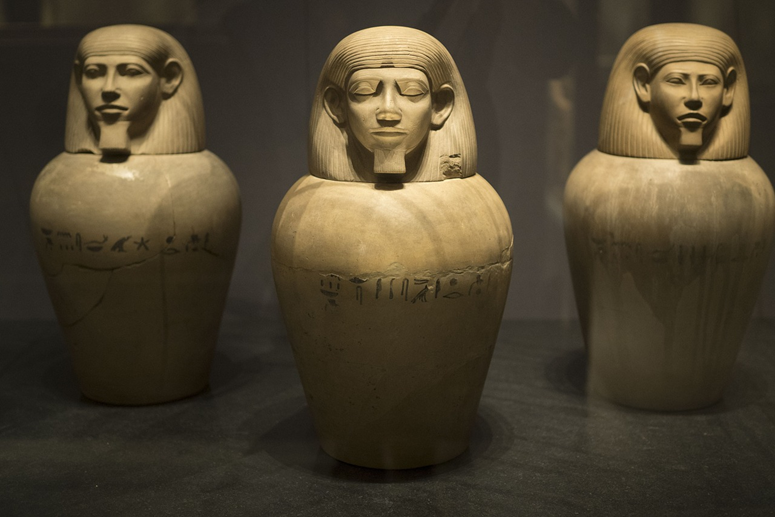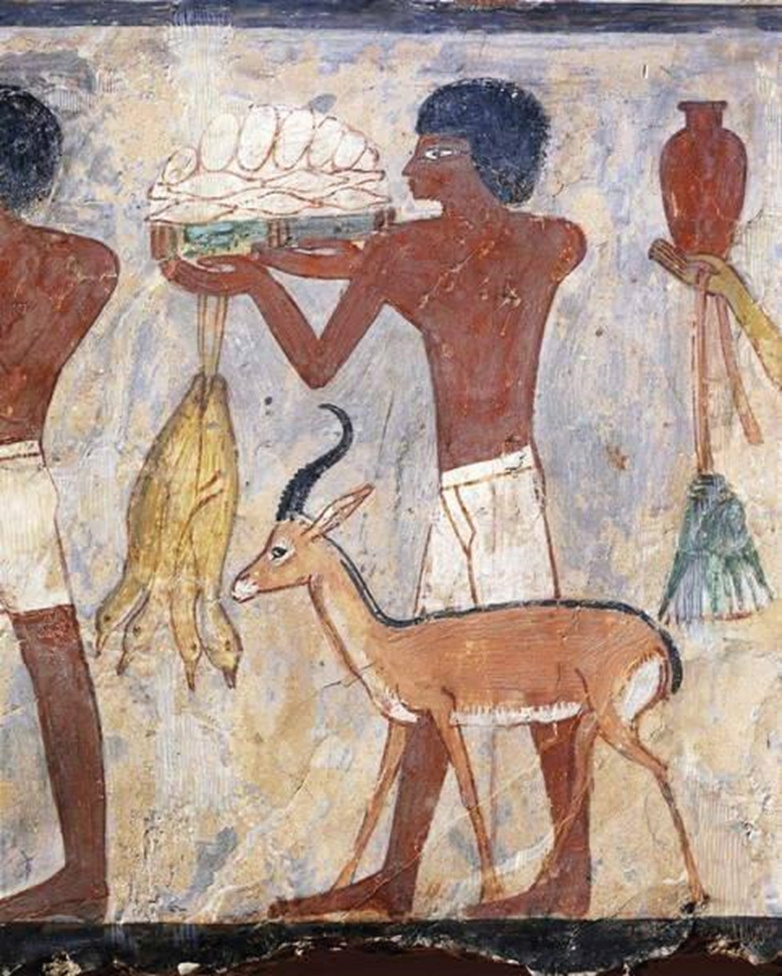?From sunrise to sunset...the ancient Egyptians fasted as a means of worship and closeness

The ancient Egyptians believed in resurrection and reckoning, and religion formed an important part of their daily lives
Many Egyptians, who currently fast during the month of Ramadan, do not know that their ancient ancestors practiced fasting as part of their worship thousands of years ago, and also as a type of treatment recommended by ancient Egyptian doctors.
The features of this fast are not completely clear to Egyptologists, but there are writings indicating that the ancient Egyptians used to fast from sunrise until sunset, especially the priestly class in their temples.
The chief archaeologist at the Egyptian Ministry of Antiquities and Tourism, Dr. Magdy Shaker, told Al-Nahar Al-Arabi: “With regard to fasting among the ancient Egyptians, there are two aspects, one of which is confirmed and supported by scientific evidence, which is the fasting of priests, and the other is based on conclusions based on what we know about the lives of the ancient Egyptians, which is fasting.” "The people."

Priests would pass tests before being ordained and joining ancient Egyptian temples
Test of priests
The expert points out that “there is no doubt that religiosity permeated all aspects of life among the ancient Egyptians: prayer, hymns, making sacrifices, and temples whose traces are still present today, and all of these things indicate that fasting was very common in the lives of the Egyptians. Especially since it is a proven practice among most religious peoples.”
“For the priestly class, fasting was essential,” Shaker says. “It was an important practice before they became eligible to enter the priesthood, as it was a test of the strength of their will, their patience, and their ability to endure.”
The chief archaeologist explains, "These priests had hierarchical ranks, and they acquired sciences, including magic, which was viewed as science and taught to them in the temples, so it was important to test them before they joined the priesthood."
Available information indicates that the priest used to fast for 7 consecutive days, and sometimes up to 40 days, during which he abstained from eating, drinking, and having sexual intercourse with women. Fasting began from sunrise until sunset, because the sun was a very influential thing in the beliefs of the ancient Egyptians.

Egyptologists believe that fasting was part of the religious rituals of people in ancient Egypt
The fast of the people
As for citizens outside the priesthood, “there is no document confirming whether their fasting is the same or not,” according to what Shaker says, “ but there are studies that indicate that the ancient Egyptians likely fasted during floods and holidays, for a few days, ranging from 3 to 7 days.” days".
The chief archaeologist says, "Fasting is a practice that has been found in most civilizations and religious beliefs since ancient times, and some consider fasting a way to wash away sins."
He adds: “Ahmed Badawi, author of an Arabic hieroglyphic dictionary, says that Hermann Case, a German Egyptologist, suggested that the word “saw” means fasting, but the literal meaning of the word is to abstain or restrain.”
According to Kiss’s opinion, the letter “meem” in the verb “sam” was added to the hieroglyphic word “saw” to become “to abstain from,” and thus it means “to fast from.” Here, Kiss imagined that the word came to mean “to fast,” that is, to abstain. About food, drink, and evil sins, and hence it means the “fasting” that we know today, and which was practiced by previous nations.

The priests practiced mummification, which contributed to increasing their knowledge of the human body and its anatomy
Fasting treatment
Some Egyptologists point out that doctors in ancient Egypt believed that the human stomach was the source of diseases, so they recommended that people fast for some days, and not to fill their stomach to the brim, but rather they must leave an empty space, so that the stomach can digest food in a proper way. .
Recent studies indicate that fasting contributes to treating the body and protecting it from many diseases, the most important of which are diseases of the heart, blood vessels, and the digestive system.
But most of these scientific studies, if not all, were conducted on types of medical fasting or therapeutic fasting, which are types in which a person does not stop drinking water or low- or no-calorie fluids.

Due to the lack of ancient Egyptian papyri or inscriptions that help know the nature of fasting that was practiced by the ancient Egyptians, no one knows the extent of the impact of fasting in this era on the health of those fasting.
The ancient Egyptians excelled in medicine and excelled in it, and Shaker attributes this superiority to the fact that “they used to mummify the bodies of the dead, which enabled them to see the composition of the human body and helped them understand its nature in a very advanced way, by the standards of this era.”
Source : websites

